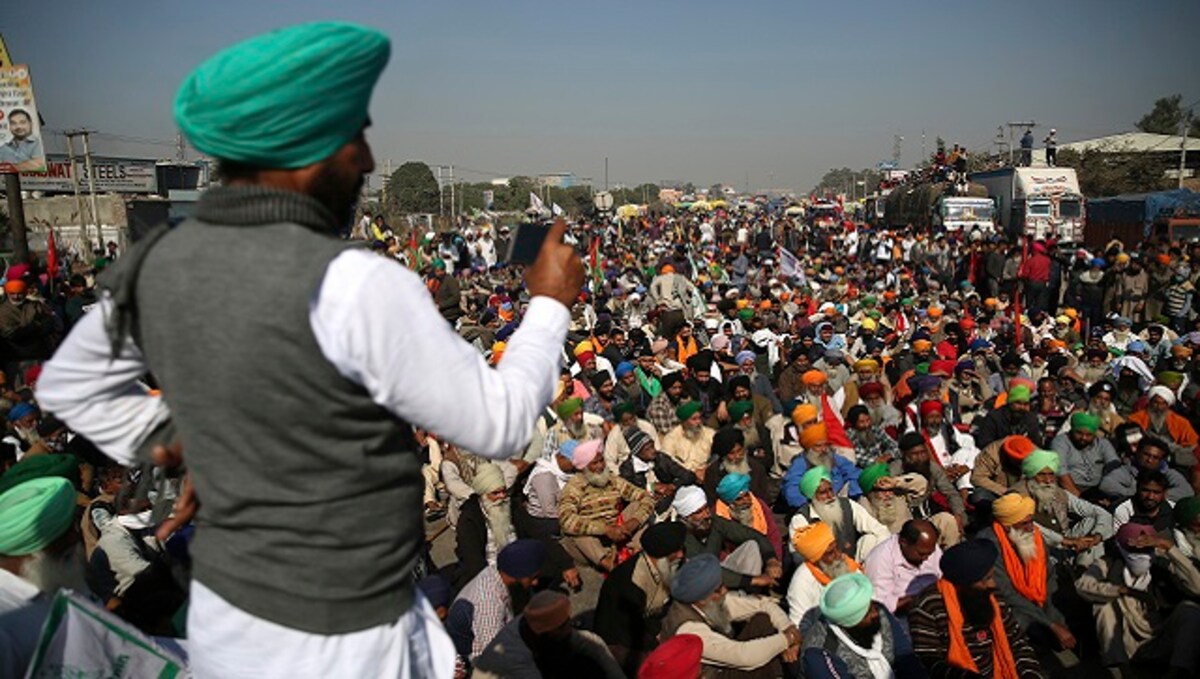
Farmers’ protests against the three agri laws passed by the central government, which have been going on for months near the national capital’s borders, are set to get a boost on Thursday. From today, the Samyukta Kisan Morcha (SKM), an umbrella group of protesting farm unions, will hold a series of demonstrations near Parliament in New Delhi’s Jantar Mantar.
The farmers’ movement has been granted permission to hold a demonstration at the site, but only 200 protestors will be allowed until August 9. Rakesh Tikait, the leader of the Bharatiya Kisan Union (BKU), confirmed that a bus carrying 200 farmers from the SKM will visit the Jantar Mantar every day.
Farmers who are protesting have also been asked to sign an affidavit stating that they will follow all Covid-19 rules and that the movement will be peaceful. During the ongoing monsoon session of Parliament, the demonstrators will be met with heavy security deployment in the area.
Police officials were seen tightening security at the Singhu border near the national capital on this day. Ahead of the farmers’ protest at Jantar Mantar against the three agri laws.
Protesting farmers have stated that if the monsoon session of Parliament ends on August 13, their demonstrations against the three agri laws passed by the central government will continue until that date. However, Delhi’s lieutenant governor, Anil Baijal, has only given the farmers until August 9 to continue their protests.
This is the first time since earlier this year’s violence at a tractor rally in the national capital on Republic Day, January 26, that authorities have allowed protesting farmers’ unions to hold demonstrations in the city.
Meanwhile, BKU leader Rakesh Tikait has urged authorities to reopen roads near protest sites for the convenience of local residents, insisting that no farmer from the Ghazipur border will travel to Delhi “secretly” and will only protest at Jantar Mantar, which is permitted.
Hundreds of farmers have been camped at Delhi’s Singhu, Tikri, and Ghazipur borders since November 2020, demanding that the Farmers’ Produce Trade and Commerce (Promotion and Facilitation) Act, 2020, Farmers’ (Empowerment and Protection) Agreement on Price Assurance and Farm Services Act, 2020, and the Essential Commodities (Amendment) Act, 2020 be repealed and a new law enacted to ensure minimum prices.
However , the government , which has held 11 rounds of formal dialogue with the protestors , has maintained that the laws are pro-farmer.




